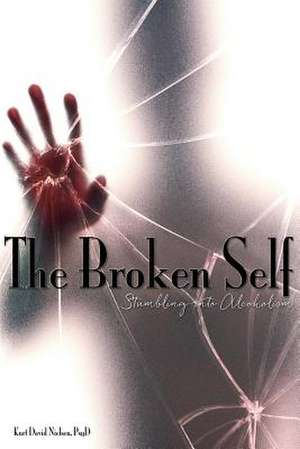The Broken Self
Autor Kurt David Nielsen Psyden Limba Engleză Paperback
Preț: 108.47 lei
Nou
Puncte Express: 163
Preț estimativ în valută:
20.76€ • 22.62$ • 17.49£
20.76€ • 22.62$ • 17.49£
Carte disponibilă
Livrare economică 02-16 aprilie
Preluare comenzi: 021 569.72.76
Specificații
ISBN-13: 9781502458452
ISBN-10: 1502458454
Pagini: 320
Dimensiuni: 152 x 229 x 17 mm
Greutate: 0.43 kg
Editura: CREATESPACE
ISBN-10: 1502458454
Pagini: 320
Dimensiuni: 152 x 229 x 17 mm
Greutate: 0.43 kg
Editura: CREATESPACE
